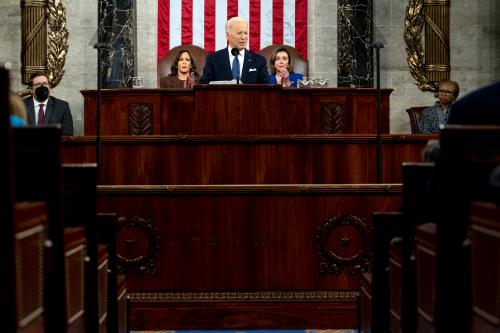It’s Tax Day 2015 and millions of Americans have noticed some changes this filing season because of the Affordable Care Act. By now, most will have sorted out the initial confusion of filling out new forms and checking boxes to report on if and how they received health insurance last year. They may also have dealt with slow and reduced customer service on taxpayer support phone lines, as the IRS attempts to implement the law amidst budget and staffing cuts. In a timely new paper, Elaine Kamarck points out that many Americans have still not felt one of the ACA’s most surprising effects on their taxes.
Kamarck warns that one issue likely to cause controversy stems from the fact that some portion of Americans will see tax refunds that aren’t as big as they expect them to be. According to the IRS, about 73% of tax filers received a refund last year averaging about $2,853. Kamarck explains that many low to moderate income Americans use the IRS as a sort of savings account, over-withholding on their taxes so they can receive a guaranteed refund later.
Those who “save” through the tax code, but aren’t covered by insurance or exempt, will get lower refunds this year as a result of the individual mandate and penalty built into the ACA. The IRS can’t put a lien on your property or garner wages if you don’t pay the fine, leading many to believe the individual mandate has no teeth. But the IRS can enforce the penalty through tax refunds. Kamarck argues that this enforcement mechanism, contrary to popular belief, is quite ingenious.
Kamarck says that this year we will see a group of people who are unhappy when they receive a refund that is lower than expected, as their failure to purchase health insurance will reduce their anticipated refund. In this first year, the penalty is moderately low—1% of yearly household income or $95—so the political backlash might not be too great. The fee for not having coverage, however, increases each year. Panelists at this week’s Taubman Forum on assessing the Affordable Care Act’s efficacy, implementation, and policy implications aptly noted that in order for the ACA to be successful, it has to fit into the overall incentive structure that already exists in the American health economy. The increasing penalty amount and shrinking tax refunds have the potential to shift incentives and behaviors, convincing people to purchase health care even if they don’t want to. Such was the case in Massachusetts after it passed a 2006 health reform law, but whether the U.S. can replicate those results at the federal level is still unclear.



Commentary
The unexpected impact of the ACA shows up on Tax Day
April 14, 2015